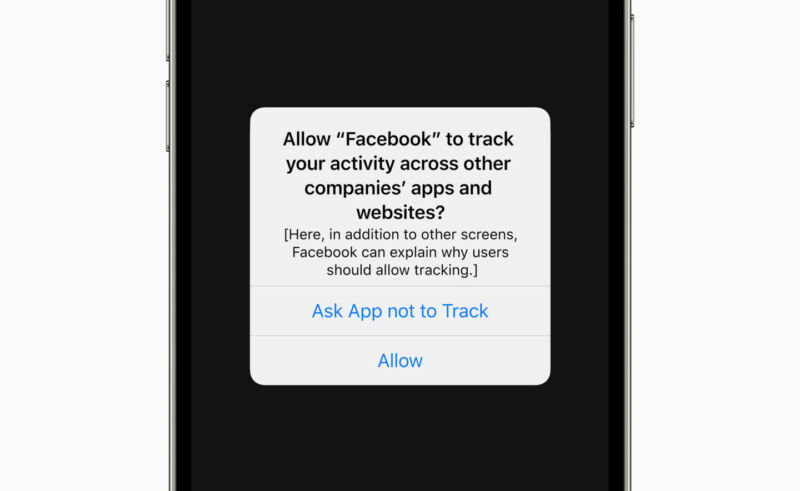
In a post on its portal for developers, Apple has outlined a number of new changes to its App Store Review Guidelines—including the requirement that developers request user opt-in to track users with IDFA (ID for advertisers) device identifiers.
That specific change is expected soon; Apple announced that it will come with iOS 14.5 in the "early spring" and has published a dedicated support page just for that issue. Apple has developer APIs, called the App Tracking Transparency APIs, for managing these required prompts.This isn't the only change to the App Store Review Guidelines, of course. Among other things, Apple "clarified the prohibition of promoting certain substances." The guidelines state that apps should not "encourage consumption" of tobacco and vape products, illegal drugs, or "excessive amounts of alcohol."
Further, "facilitating the sale of" marijuana or tobacco is not allowed, and controlled substances may only be sold by apps owned by licensed pharmacies.
Apple also included a more explicit requirement that app developers submit a detailed, accurate privacy sheet with app submissions, as well as that they maintain and update app descriptions, screenshots, privacy info, and so on along with "new versions" of the app.
Many reports have pointed out that the new, nutrition-label-like privacy sheets that accompany apps in the App Store since the launch of iOS 14 are not always accurate. It's unclear how much this change will help with that concern.
The guidelines state that gift cards, certificates, vouchers, coupons, and developer tips must be made through Apple's payment system.
Also notable is further clarification of Apple's App Store policy for streaming game services like Google's Stadia or Microsoft's cloud gaming component of Game Pass. There's no major new information here, though; Apple has just tweaked the language. As was previously known, these services can still exist on the App Store provided they list each game as its own title on the App Store for review, and they "must be designed to avoid duplicate payment by a subscriber and should not disadvantage non-subscriber customers."
Both Google and Microsoft have opted to offer their game-streaming services entirely via the mobile Web browser on iOS and iPadOS to get around these restrictions.
These updates to the App Store Review Guidelines follow considerable controversy for Apple on this front. The company has faced a feud with major game maker and game-development-tools company Epic Games over its revenue share, as well as a public relations fiasco over the same issue but with a smaller (but still notable) developer called Basecamp.In response to those controversies, Apple pledged more transparency, adjusted its revenue share model, tweaked some of its guidelines, and created new feedback channels for developers to raise grievances over said guidelines.
And then there's an ongoing battle between Apple and Facebook over that IDFA tracking change mentioned above. Facebook CEO Mark Zuckerberg has claimed that the change poses a serious threat to Facebook's business and, by extension, the survival of numerous Facebook-dependent small businesses. He has also claimed that Apple's policy represents an overall problem with anticompetitive behavior, and one report indicated that Zuckerberg may be preparing a major lawsuit to challenge Apple on its App Store policies, among other things.
For his part, Apple CEO Tim Cook delivered a speech last week chastising Facebook's business model (which depends on trackers like IDFA) as a source of division and violence.
Technology - Latest - Google News
February 03, 2021 at 03:29AM
https://ift.tt/2O2sID9
Apple’s updated App Store guidelines clarify positions on recent controversies - Ars Technica
Technology - Latest - Google News
https://ift.tt/2AaD5dD
Bagikan Berita Ini














0 Response to "Apple’s updated App Store guidelines clarify positions on recent controversies - Ars Technica"
Post a Comment